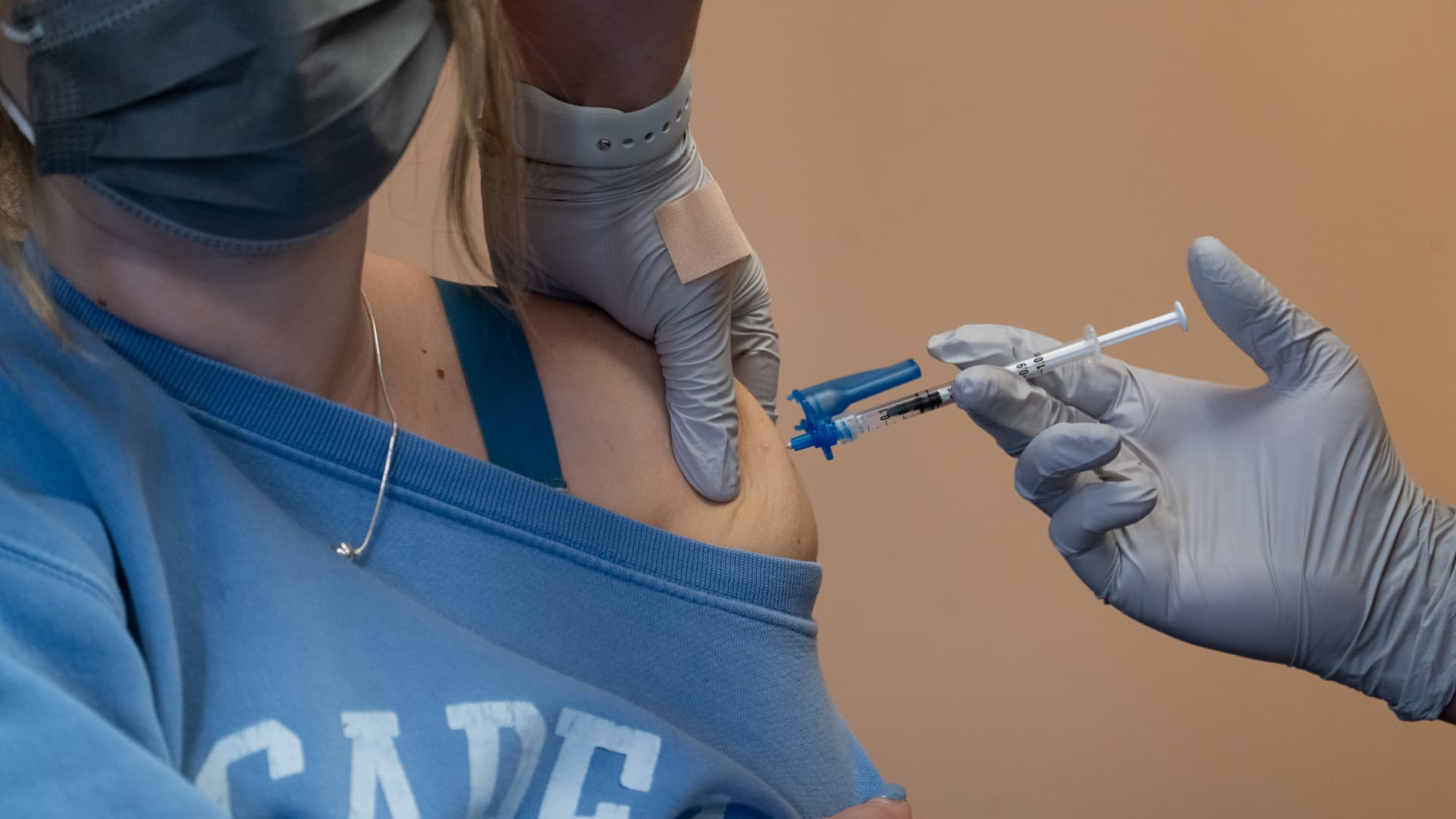Covid-19 vaccination is linked to a slight increase in the length of a women’s menstrual cycle, delaying the beginning of bleeding by a few hours, according to a large international study funded by the National Institutes of Health.
Dr. Diana Bianchi, head of NIH’s child health and human development institute, said the changes following vaccination appear small, temporary and within the normal range. However, the longer menstrual cycle, typically about a month long, didn’t necessarily increase the number of days of bleeding, according to health agency.
A change in menstrual cycle length of eight days or less is considered within the normal range of variation, NIH said. Participants’ menstrual cycles increased by an average of .71 days, or less than 24 hours, after the first vaccine dose and by just over half a day after the second dose, according to the study’s findings. Women who received both vaccine doses in a single menstrual period saw their cycle increase by 3.91 days.
But more than 1,300 women saw their cycle increase by eight days or more, representing 6.2% of vaccinated individuals and 5% of unvaccinated people in the study. Younger women who had a longer cycle before vaccination were more likely to see a bigger delay in the start of their periods.
After the vaccination series was complete, cycle length had largely returned to normal for women who received one dose per menstrual cycle and by about 20 hours for those who received both doses in a single cycle.
Nearly 20,000 people participated in the study across Canada, the U.K., the U.S., Europe and other parts of the world. Participants received one of nine different vaccines: Pfizer–BioNTech, Moderna, Johnson & Johnson, AstraZeneca, Covishield, Sputnik, Covaxin, Sinopharm and Sinovac.
The changes in menstrual cycle length did not differ between vaccines.
The researchers used data from a fertility tracking app called Natural Cycles. Women provided information on their temperature and menstrual cycle length to the app. Users of the app can select an option to provide their data for research purposes without any personally identifying information.
The researchers had released preliminary findings in January suggesting an association between Covid vaccination and increased menstrual cycle length, and the study published this week confirmed the link. NIH provided $1.67 million to five research institutions to investigate the issue.
